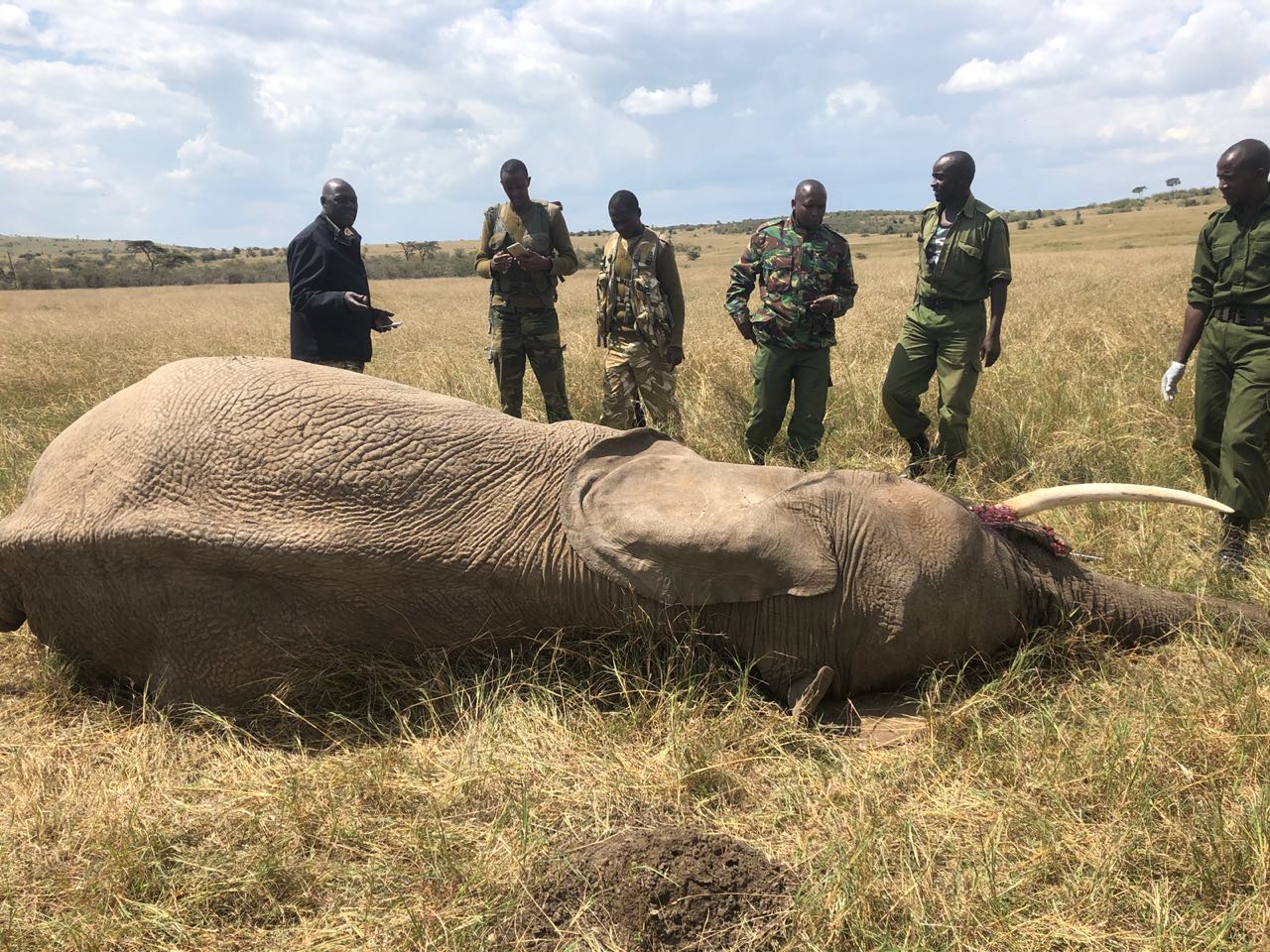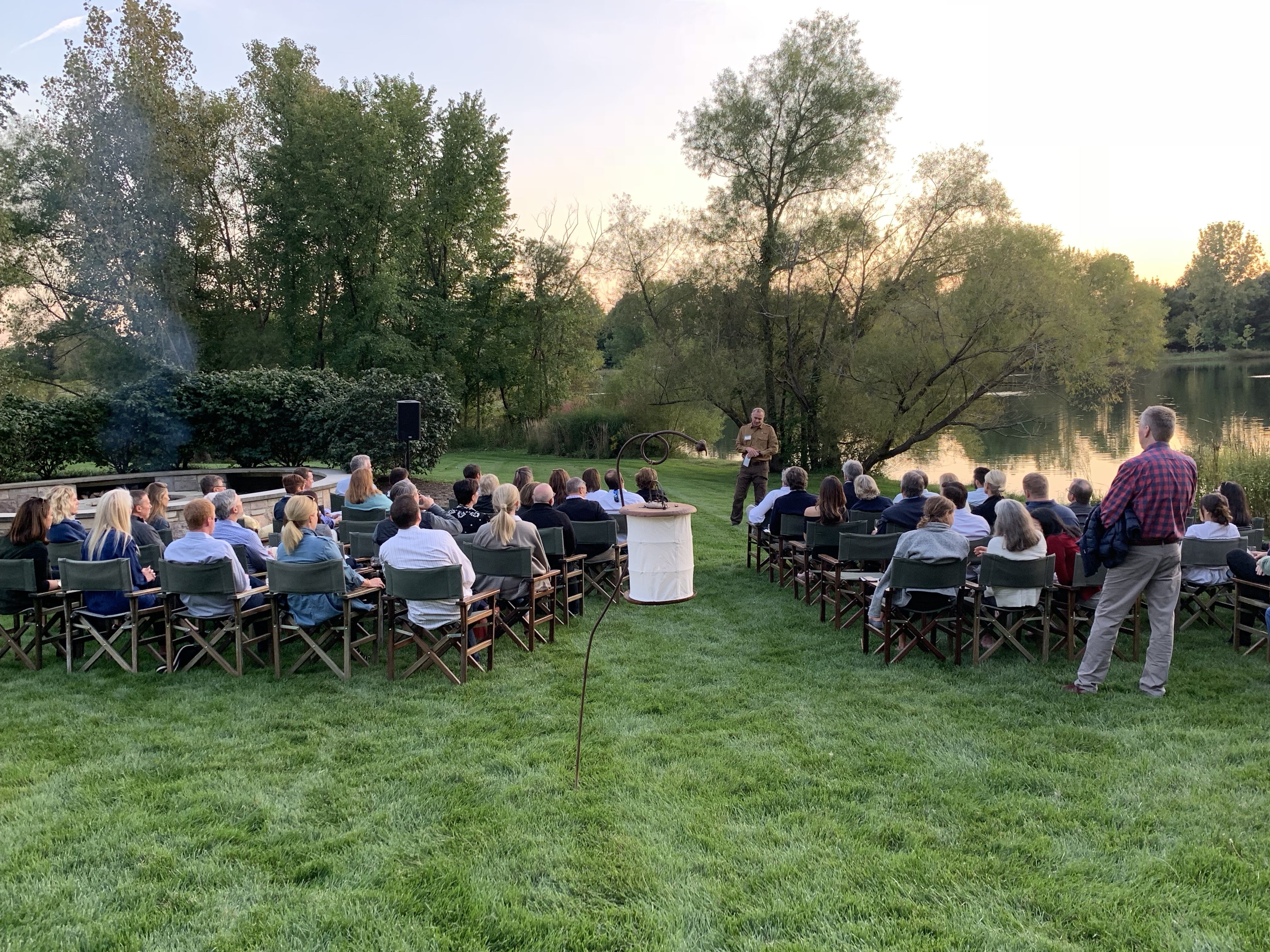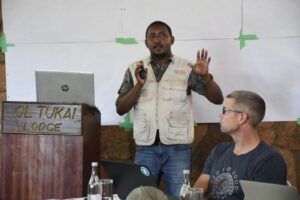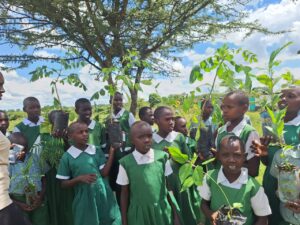September was the deadliest month so far for elephants in the Mara in 2018. This increase in elephant mortalities, a total of seven this month, means there is a disturbing new trend emerging. Generally, high human-elephant conflict months directly correspond with the ripening of crops. Elephants mostly crop raid when there are ripe crops to raid; however, in September, there haven’t been ripened crops and it’s been dry all month. Meaning, the decline in human-elephant conflict this month (only seven incidents) does not correlate with the rise in elephant deaths. This points to the idea that because there are limited food and water resources due to the lack of rain, elephants and humans are now coming into contact more because they are both fighting for the same resources.

One of the two elephant carcasses reported on September 4 and 5.
While this is certainly not the first dry month the Mara has ever seen, the high rate of elephant deaths despite the current efforts of MEP patrol and rapid response units means that more resources are needed on the ground to mitigate human-elephant conflict even during what was traditionally considered a low crop raiding season. This is an extremely concerning trend that the MEP team will be monitoring closely. These elephant deaths are being investigated by MEP rangers and they continue to go into the communities to help in any way they can to reduce the conflict.
MEP Monthly Report September 2018
The MEP approach to collaring, monitoring and collecting data on elephants in the Mara ecosystem has been a proven method for helping mitigate human-elephant conflict and predict elephant movement patterns. Right now, the Kenya Wildlife Service has banned any non-emergency veterinary treatment on wildlife in Kenya, which means that MEP’s collaring operations are on hold. MEP CEO Marc Goss took this time to travel to Tanzania to help the Friedkin Foundation and Tanzania Wildlife Research Institute (TAWIRI) to collar 13 elephants in the Selous Game Reserve. Marc along with the team successfully collared all 13 elephants in just seven days. Read more about Marc’s time in Tanzania and about the importance of collaring elephants in this ecosystem.

This was the first elephant collaring operation in Tanzania on September 5.
MEP CEO Marc Goss spent considerable time in the U.S. in September where he spoke at Tufts University Cummings School of Veterinary Medicine, attended the Indianapolis Prize and presented at a MEP supporter event at MEP founder Suzie Fehsenfeld’s home.
 MEP CEO Marc Goss presenting to the MEP supporter audience.
MEP CEO Marc Goss presenting to the MEP supporter audience.
It was an active month for Mara Elephant Project’s core funder, the ESCAPE Foundation. They have officially changed their name to the Sidekick Foundation and though their focus remains the same, they are looking to capture more appropriately their belief in fulfilling their role as the sidekick to the next generation of conservation heroes. You can check out their new website at www.sidekickfoundation.org.


